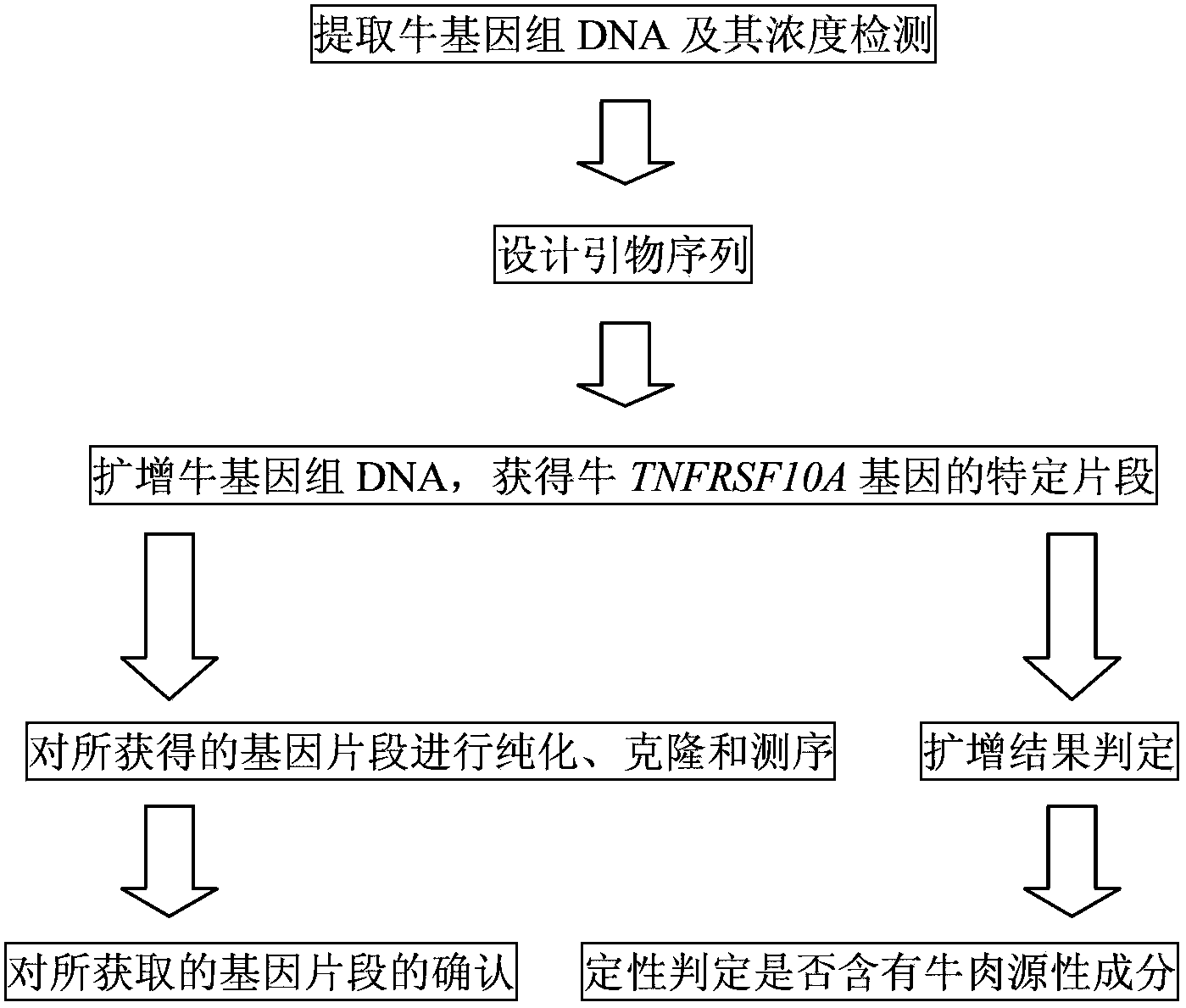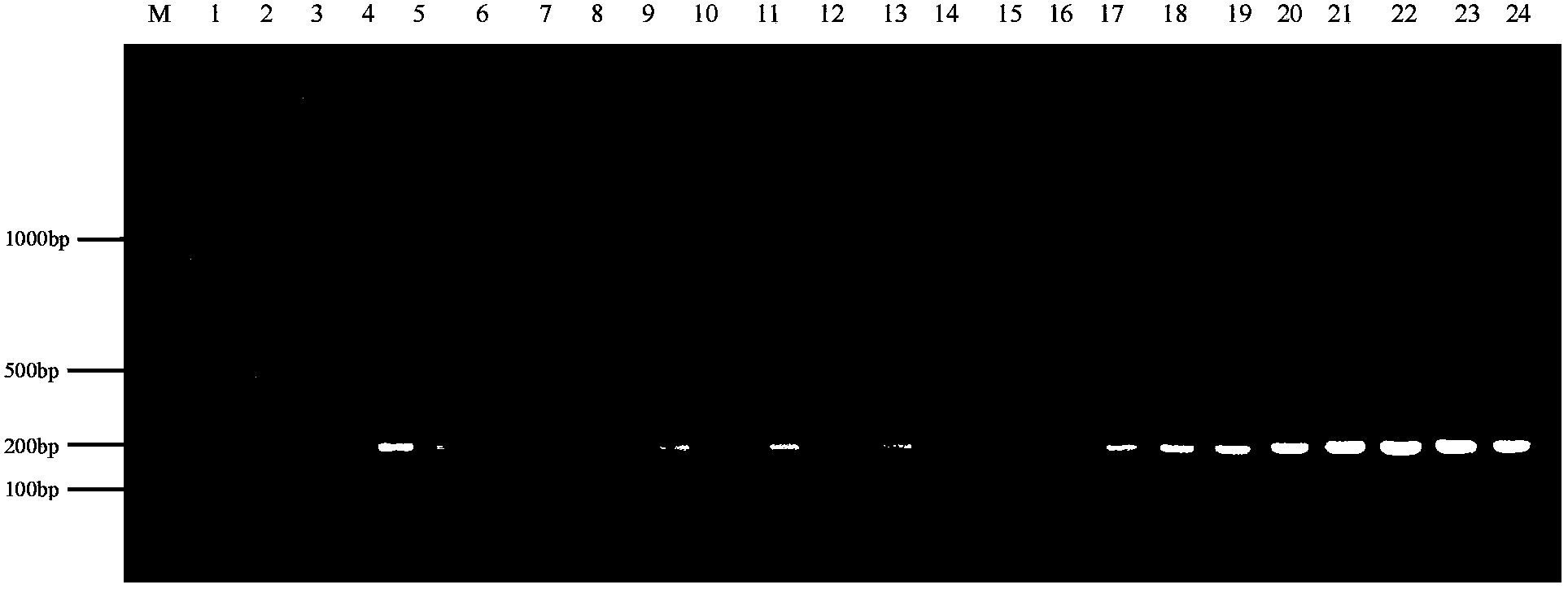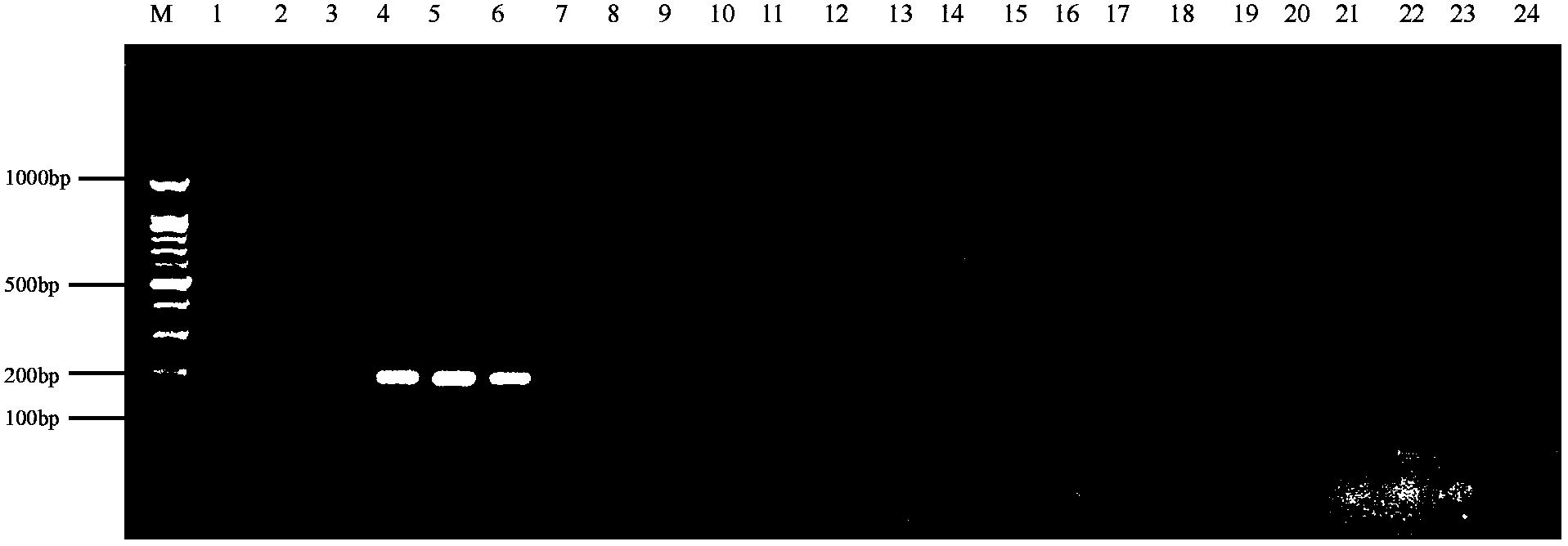Molecular identification kit of meat product made of beef and application of molecular identification kit
A technology for molecular identification and meat products, applied in the field of animal molecular biology, can solve problems such as poor sequence-level specificity, and achieve the effect of low cost and strong specificity
- Summary
- Abstract
- Description
- Claims
- Application Information
AI Technical Summary
Problems solved by technology
Method used
Image
Examples
Embodiment 1
[0055] 1. Sample preparation and storage
[0056] 1.1 Sampling
[0057] Collect 1 g of common beef product samples and store them at -20°C for future use.
[0058] 1.2 DNA template preparation
[0059] The DNA template is prepared using the commonly used phenol-chloroform crude extraction method (see: Sambrook J, Fritsch E F, Mani Artis T. Molecular Cloning Experiment Guide [M]. 2nd Edition. Jin Dongyan, Li Mengfeng Translated. Beijing : Science Publishing House, 1999.465-467) or other recognized DNA extraction methods with the same efficacy, these methods are all reported common methods.
[0060] 2. Primer Design
[0061] The DNA sequences of the primers in this example are shown in Table 1 and SEQ ID NO: 2 and 3 in the sequence table.
[0062] Table 1 PCR amplification primers designed by the present invention
[0063] Primer name Primer sequence TNFR-F 5′-CAGTGAGGACATCAGCCTAGAGT-3′ TNFR-R 5′-CTGCTCCTAGCCATCAGTGGA-3′
[0064] The size of t...
Embodiment 2
[0084] The assembly of embodiment 2 kit
[0085] 1. The reagent composition in the kit is as described in Table 2:
[0086] Table 2PCR reaction system (ie reaction reagent)
[0087]
[0088] 2. One copy of the operation manual containing the standard PCR method as mentioned above.
[0089] 3. See Table 3 for kit composition, storage and stability testing.
[0090] Table 3 kit composition, storage conditions and stability test of the present invention
[0091]
[0092]
[0093] After testing, the assembled kit of the present invention will not affect its use effect if it is stored at room temperature for 12 months.
[0094] The application method of the test kit of the present invention is as follows:
[0095] 1. According to the following PCR reaction system, add the sample to a 200 μL EP tube (see Table 4):
[0096] Table 4PCR reaction system loading components and dosage
[0097]
[0098] 2. Load samples according to the above PCR amplification conditions; ...
PUM
 Login to View More
Login to View More Abstract
Description
Claims
Application Information
 Login to View More
Login to View More - R&D
- Intellectual Property
- Life Sciences
- Materials
- Tech Scout
- Unparalleled Data Quality
- Higher Quality Content
- 60% Fewer Hallucinations
Browse by: Latest US Patents, China's latest patents, Technical Efficacy Thesaurus, Application Domain, Technology Topic, Popular Technical Reports.
© 2025 PatSnap. All rights reserved.Legal|Privacy policy|Modern Slavery Act Transparency Statement|Sitemap|About US| Contact US: help@patsnap.com



